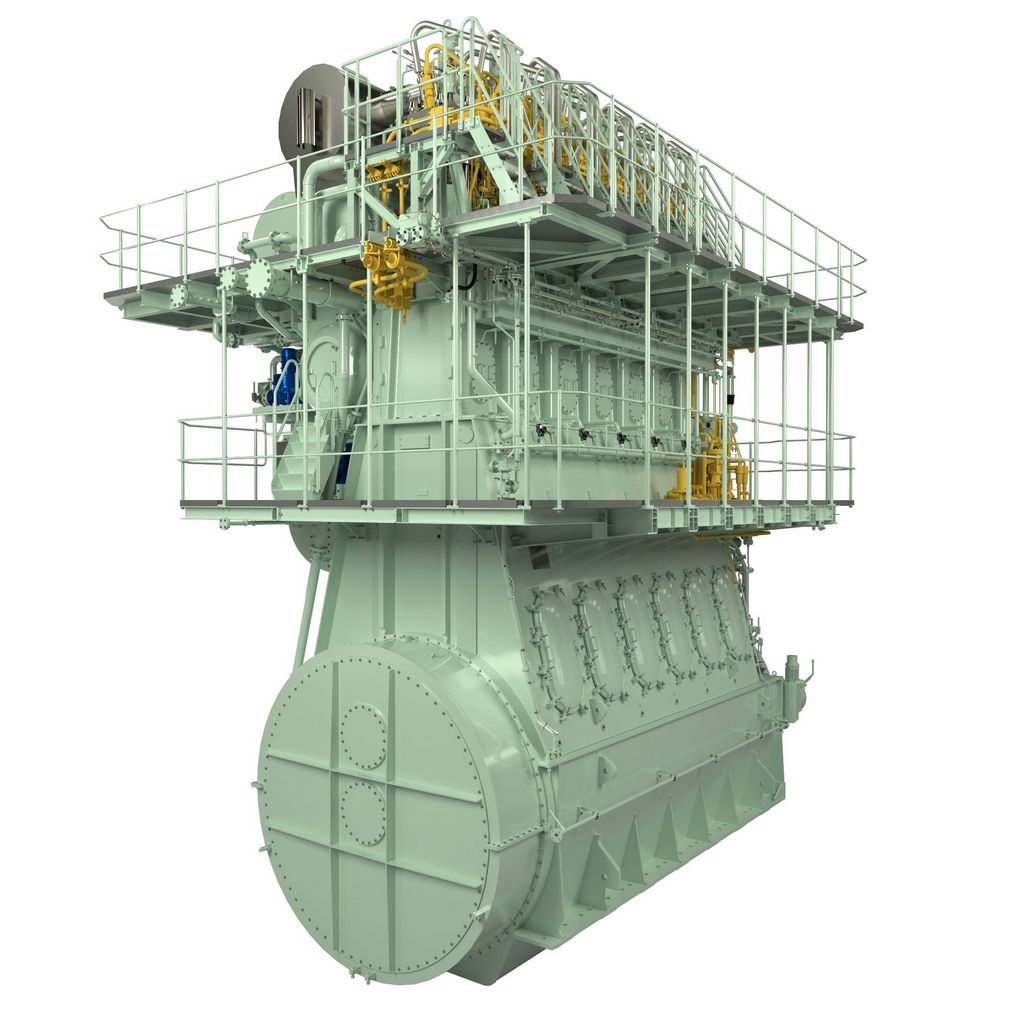German engine manufacturer MAN Energy Solutions (MAN ES) has revealed that it is developing an oxidation catalyst for four-stroke engines that will reduce methane slip by 70%.
Called ‘IMOKAT II’ and developed at MAN Energy Solutions’ headquarters in Augsburg, Germany, the research project is currently undergoing testing at the company’s Frederikshavn, Denmark facility.
According to MAN ES, the new project will investigate the operational experience of a pre-turbo methane-oxidation catalyst, ultimately aiming for a 70% reduction of methane emissions at 100% load. The project is funded by the German Federal Ministry for Economics and Climate Action.
MAN Energy Solutions reports that pre-turbocharger integration of the catalyst is necessary because of the exhaust gas pressure and temperature level there. Integration is much more complex there compared to a post-turbocharger installation, as is found with selective catalytic reduction (SCR).
The catalyst material chosen without precious metals is sulphur-resistant, which is an important design consideration as – even during gas operation – pilot- and lube-oils contain traces of sulphur. It also means that it is possible to preheat the catalyst in diesel mode before switching to gas operation, where a cold catalyst would not be able to perform optimally and methane slip would occur.
Whereas the predecessor project, IMOKAT I, investigated different catalytic materials and uncovered a sulfur-resistant material without any precious metals that facilitated high methane conversion, IMOKAT II is a prototype and technology demonstrator.
In this context, it is currently investigating the material’s potential on a test engine with the major goal of designing a catalyst solution that can be applied to a full-scale engine to reduce methane emissions in the field.
Field testing aboard a vessel is scheduled for the first quarter of 2024.
As part of its decarbonization agenda, MAN ES recently informed, that it partnered with industry leaders and research institutes to develop concepts for hydrogen-fueled medium-speed engines in the maritime sector.
The partnership will work on the project dubbed ‘HydroPoLEn’, which is also supported and funded by the German Federal Ministry for Economic Affairs and Climate Action.
Tags: Engine, MAN ES, Methane



Recent Posts
Scandlines Nears Delivery of Zero Emissions Ferry Following Successful Sea Trials
India faces emission roadblocks with rising net-zero demands
Green Energy Resources invests in two electric Liebherr LHM 550
NYK Launches Continuous Use of Bio LNG Fuel on Car Carriers to Advance Decarbonization Goals
Yang Ming Expands Fleet with Methanol and LNG Dual-Fuel Vessels Under Fleet Optimization Plan
ClassNK Advocates Speed Gap Monitoring to Optimize Fuel Efficiency in Heavy Weather
Wärtsilä’s retrofit package for the Corsica Linea ferry Pascal Paoli has resulted in fuel savings of up to 22 percent Corsica Linea
COSCO Shipping Names Second Methanol Dual-Fuel Containership in Yangzhou